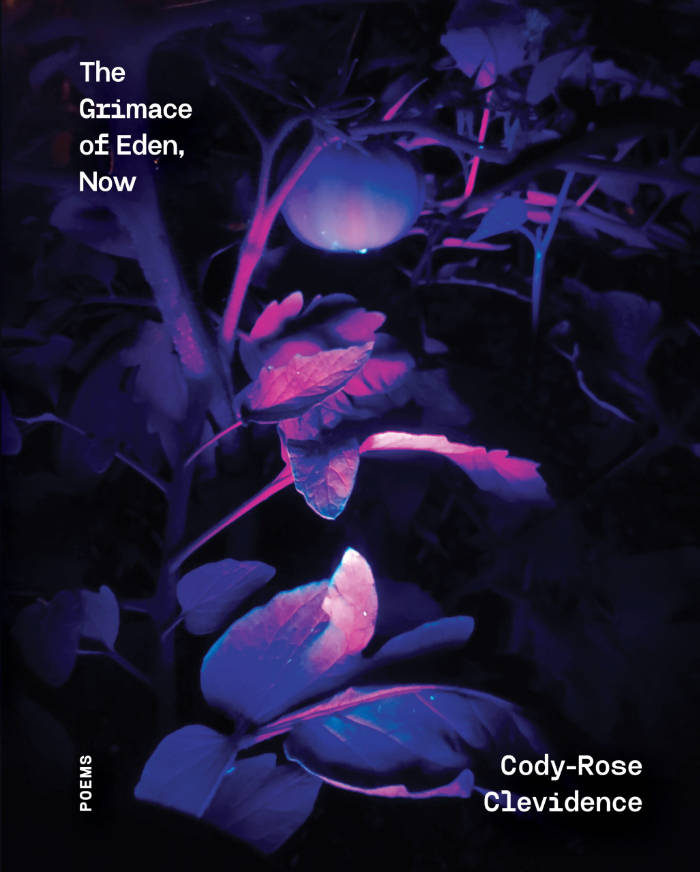
The Poeticians
Language: English

Language: English

Laura Cemin, Bianca Hisse and 1 more
Referring to Gloria Anzaldúa's notion of 'wild tongue' (Borderlands/ La Frontera, 1987), the publication departs from the questions: How to tame a wild tongue? How to carry language? The verbs 'taming' and 'carrying' imply certain dynamics of permission and restriction of movement, and suggest the entanglement between language and the body. The project delves into the notion of 'tonuge' as an archive: the 'tongue' as a muscle shaped by the physical practice of moving/ talking, having memory; the 'tongue' as a 'cultured' part of the body. It addresses accent as part of our linguistic identity, but also something that defines access or restriction. (From Monika Charkowska's preface to the publication)
Artists: Bianca Hisse, Laura Cemin
Curated by: Monika Charkowska
Texts by: Monika Charkowska, Claire Goodall, Kübra Gümüsay, Bianca Hisse, Laura Cemin
Edited by: Monika Charkowska
Translations: Epp Aareleid (ENG to EST), Ksenia Krimer (ENG to RUS), Keiu Krikmann (ENG to EST), Anita Kodanik (ENG to RUS)
English Proof-Reading: Epp Aareleid
Graphic Design: Kersti Heile
Edition of 200.

In 2019 SOTA finished the first Fair Arts Almanac. The content of the book was generated during a week long summer camp in 2018 with about 70 contributors. The result was a bundling of tips & tricks, statements & demands, visions & ideas, dates & data, testimonies & voices, addresses & announcements on fairness within the complex relationships between the artistic, political and economic sphere. The compilation of various contributions in this first edition was deliberately associative and open for debate, full of contradictions, loose ends and inconsistencies.

Edition of drawings, paintings and scans by Sophia Hamdouch, wrapped in a vinyl sleeve.

Somewhere in England, confined to a room with empty chairs and an old telephone, is I. I wasn’t born here. English is their second language. They’ve given up writing. England With Eggs depicts the psychological aftermath of migration through a personal vortex of foreign experiences. Oscillating between narrator and character, Franz Kafka and long-distance calls, I spends sleepless nights drawing eggs, rearranging the chairs and talking to an uncanny voice on the phone. The isolated protagonist’s inner life is fractured: notions of place and history grow ever more fragile, language ever less certain. Torn between stubborn expectations and the reality of a foreign country, England With Eggs unfolds against a silent backdrop of austerity, colonialism and xenophobia. It is a study of acceptance, a reminder that sometimes the things we flee from are the ones we carry along on our journey.
This publication is limited to 100 copies, which are signed and numbered by the author.
Edited by Angie Harms

Publié en 2025 dans le cadre du projet d'art public The River as Habitat installé dans le Lycée Edward Steichen, Clervaux et commandité par l'administration des bâtiments publics, Luxembourg.


As If They Had A Spirit is the first comprehensive monograph of artist Pontus Pettersson. Using drawing and narration, the book expands on Pettersson’s sculptural, poetic and choreographic practice through the accounts and fabulations of long term collaborators. As If They Had A Spirit centers the acts of re-membering, re-telling and re-tracing as situated methods for documenting and studying the protracted and evolving nature of process-based artistic practices.
Recounted and drawn by Linnea Hansander, Robert, Malmborg, Diana Orving, Karina Sarkissova, Sandra Lolax, Stina Nyberg, Anna Koch, Peter Mills, Anna Efraimsson and Galerie (Simon Asencio & Adriano Wilfert Jensen)
Edited and redrawn by Galerie (Simon Asencio & Adriano Wilfert Jensen)
Editing assistance Izabella Borzecka
Published by Galerie, Int
Co-publisher & Distibribution: PAM, Stockholm
As If They Had A Spirit was made possible with generous support by the Swedish Arts Council, Weld, MDT and PAM

The playful, inventive, and lyrically quick poems comprising The Grimace of Eden, Now orbit the strange space halfway between Tennyson and the Metaverse, veering between the natural world and a sci-fi universe, between inner feelings and outward observations, with questions of divinity alongside domestic life, spiders, dishes, and spaceships. The roving eye of these poems wanders through spacetime carrying irreverent theologies and exploring what it could mean to be living, sensate, and awake in this weird moment in time, exposing a mixture half of awe and half of madness.
Cody-Rose Clevidence is the author of Aux Arc / Trypt Ich (Nightboat Books, 2021), Listen My Friend, This is the Dream I Dreamed Last Night (The Song Cave, 2021), Flung/Throne (Ahsahta, 2018), and BEAST FEAST (Ahsahta Press, 2014), as well as several chapbooks (Fonograf Editions, flowers and cream, NION, garden door press, Auric). Occasionally a visiting poetry professor at the Iowa Writers Workshop, they live in the Arkansas Ozarks alongside three loyal, sentient pets, and the continuous void.